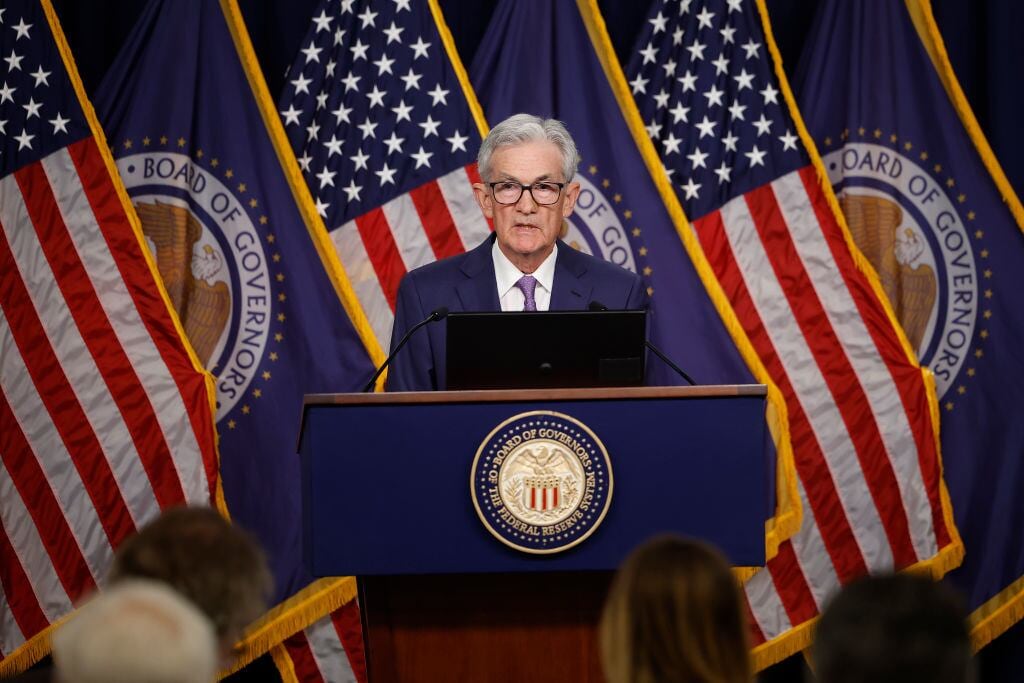U.S. markets traded in a tight range Wednesday as Federal Reserve Chairman Jerome Powell testified at the annual meeting of the Joint Economic Committee of Congress, a stone's throw from the impeachment hearings into President Trump happening concurrently in front of the House Intelligence Committee.
Powell reaffirmed the central bank's outlook and said after its most recent rate cut last month ー the third in 2019 ー namely, that policymakers are comfortable with the current state of monetary policy and are unlikely to cut rates again in the short-term.
"The baseline outlook remains favorable" with "sustained expansion of economic activity," Powell said, and the Fed's currency stance is "likely to remain appropriate" if economic conditions don't materially change.
With the U.S. economy noticeably cooling in certain areas ー manufacturing is in a recession, business investments are shrinking, and productivity is falling ー Powell made a point to recognize that the labor market remains remarkably strong, with unemployment "meaningfully" below 4 percent for 18 straight months for the first time.
The economy is capable of operating with lower unemployment than was thought possible with inflation remaining in check, Powell said.
Responding to questions from lawmakers, Powell acknowledged that labor force participation for Americans in their prime working years is and has been stubbornly low and "not where it should be," relative to other developed nations. He also noted that the highest wage growth is happening in many of the lowest-paying fields, which is helping support consumer confidence that is perhaps higher than one would expect given the macroeconomic headwinds, including overall trade tensions with China.
"The outlook is good," Powell said.
Pressed by several lawmakers to comment on President Trump's repeated attacks on him, Powell demurred, at one point refusing to take the bait from Sen. Ted Cruz who asked him to comment on what a wealth tax, proposed by Sen. Elizabeth Warren, could do to economic growth.
The Fed works for all Americans and stays out of politics, Powell said. Though he did also notably say that the federal budget is on an "unsustainable path," which could present a problem if and when the economy goes into a downward trajectory.
But despite the risks, Powell remained upbeat during his 90 minute appearance on Capitol Hill, at one point even asking Americans to pat themselves on the back for the country's economic fortunes.
"I hope everyone takes credit for the good economy we're seeing now," he said.













